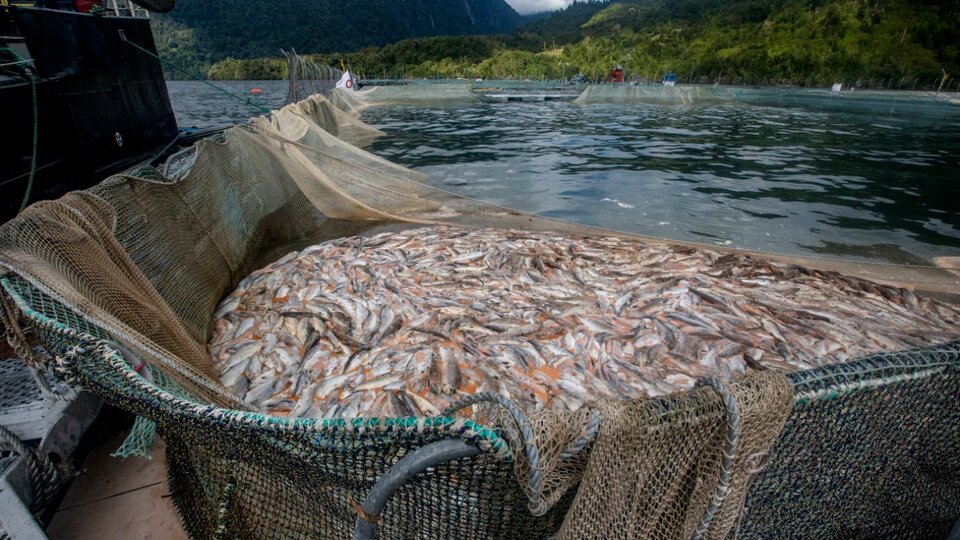
[ad_1]
The Chilean authorities on Monday announced the withdrawal of 5595 tonnes of dead salmon due to the growth of a tide of harmful algae, a phenomenon that experts call an “environmental disaster” and blame both climate change and “irresponsible salmon farming”.
The proliferation of microalgae, which leaves fish without oxygen, has plagued the southern regions of Aysén and Los Lagos for weeks, two areas that lead national salmon production, with 88 percent of the country’s total harvest.
In less than a week, 3,076 tonnes of salmon were lost in Los Lagos and 2,519 tonnes in Aysén, the National Fisheries and Aquaculture Service (Sernapesca) reported in a statement.
Of the 5,595 tonnes of dead fish, it was possible to remove about 95%, which was transported with boats and trucks to reduction factories to avoid environmental damage, they added from Sernapesca.
This phenomenon has led nearly twenty breeding centers to implement action plans for mass mortalities and has affected the production of several of the large salmon farms operating in the country.
Harmful algae
Chilean-German biologist Vreni Häussermann explained that fish mortality is due to the phenomenon “FAN” (harmful algae bloom), which occurs “when an increase in nutrients in the water causes a state of eutrophication that leaves marine flora and fauna without oxygen“.
According to the specialist, this situation is related to climatic factors such as increased solar radiation or lack of precipitation, but to a large extent it is also caused by discharges from salmon companies that fall to the bottom of the sea and leave the entire water column, denounced the expert.
“We are in a moment of environmental catastrophe, it is a dramatic situation and the worst is yet to come,” warned Häussermann, director of the Huinay Scientific Center in Patagonia.
From Greenpeace Chile, they warned of the impact of the FAN phenomenon on the region’s ecosystem and biodiversity, which threatens fish, corals and other algae. “
This is a crime and must be investigated. It cannot be that salmon farms systematically pollute our sea“said Estefanía González, spokesperson for Greenpeace.
Chile is the second largest producer of salmon in the world after Norway and last year the country’s exports totaled $ 4,382 million, down 14.6 percent from the previous year, according to the Salmon Council data.
.
[ad_2]
Source link
 Naaju Breaking News, Live Updates, Latest Headlines, Viral News, Top Stories, Trending Topics, Videos
Naaju Breaking News, Live Updates, Latest Headlines, Viral News, Top Stories, Trending Topics, Videos